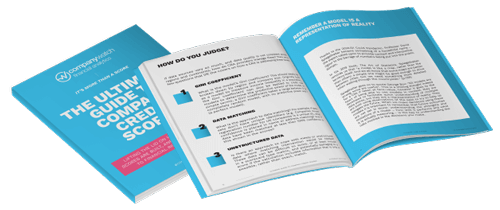Enhanced Due Diligence Checklist: Mergers & Acquisitions

During a merger or an acquisition (M&A), a company conducts due diligence checks on the business they are going to be working with. This is essentially a comprehensive investigation into a number of crucial elements, including the target company’s potential fraud risk, director history, financial health, and legal standing. A robust due diligence process allows companies to mitigate financial risks, make informed decisions, and maximise the potential value of a deal.
Enhanced due diligence is a more rigorous approach to the due diligence process during the M&A phase. It allows businesses to uncover potential liabilities and hidden risks that may not be apparent in standard due diligence. Company Watch helps businesses reduce their financial risk and get the most out of M&A deals through extensive enhanced due diligence checks.
The enhanced due diligence checklist for M&As below will serve as a valuable starting point for your due diligence checks during the merger and acquisition process.
M&A enhanced due diligence checklist
1. Financial due diligence
According to a recent study by Coventry University, 40% of M&A deals tend to fail due to inconsistencies in financial data. This high number exemplifies the need for extensive financial due diligence to avoid potential problems down the line.
Financial due diligence covers the following key elements:
- Analysing financial statements, including income statements, balance sheets, and cash flow statements.
- Assessing the target company's historical financial performance and future projections.
- Reviewing the company's accounting policies and procedures.
- Identifying any potential financial risks or liabilities through a thorough audit.
2. Legal information
Before the due diligence process begins, ask for up-to-date copies of all corporate documents. Below are the main documents to ask for for legal checks:
- Articles of incorporation/association - these outline the company's legal structure, purpose, and governing rules.
- Company bylaws
- Shareholder agreements
- Minutes of board and shareholder meetings
- Organisational chart or structure of the company
- Contracts and leases i.e. agreements with suppliers, customers, landlords, and other parties.
- Permits and licences
- Intellectual property rights i.e. patents, trademarks, copyrights, and trade secrets.
3. Operations checks
A study by McKinsey showed that 30% of major acquisitions experience operational challenges within the first few weeks of the deal closing. This is common because of a few reasons, the most important one being the lack of transparency that tends to exist during the due diligence process.
To ensure that all your bases are covered before you officially enter into an M&A partnership, make sure to do the following:
- Assess the target company's business model and operations to see if they align with yours.
- Review the company's supply chain and customer relationships. Run due diligence checks on major suppliers if needed.
- Identify any potential operational risks or inefficiencies.
- Evaluate the company's management team and key personnel, especially directors and main shareholders.
4. Tax due diligence
To conduct a comprehensive audit of your target company’s tax liabilities and general activities, you need to ask for the following key documents:
- Corporation tax returns i.e. CT600 forms and supporting schedules.
- VAT returns and records of VAT input tax and output tax.
- PAYE and NIC Returns i.e. forms P11D, P14, and P35.
- Land and property returns (LPRs).
- Tax authority correspondence i.e. correspondence with HMRC regarding tax inquiries, assessments, or investigations.
- If applicable, documentation related to intercompany transactions.
Once these documents are acquired, you must review the tax filings and compliance history, identify any potential tax liabilities or risks, assess the impact of tax laws and regulations on the transaction. Note that these tax documents are applicable to the UK only.
5. IT assessment
According to a report published by the UK government, 50% of businesses report having experienced some form of cybersecurity breach or attack in the last 12 months. With the advent of AI and increasingly advanced technology, this number is not looking to decrease anytime soon. This makes it critical to run an IT audit of your target company to assess the risk of potential cyber attacks that may impact your business directly.
For a comprehensive assessment of IT, make sure to do the following:
- Assess the target company's IT infrastructure and systems.
- Evaluate cybersecurity risks and data privacy compliance.
- Identify any potential IT-related liabilities or risks.
Ensuring a smooth enhanced due diligence process
The enhanced due diligence process is meant to not just provide deeper insights into a target company’s overall health, but it is also meant to streamline your due diligence checks.
Company Watch offers a comprehensive solution for businesses seeking to conduct thorough enhanced due diligence during mergers and acquisitions. By providing detailed company reports, director information, tax filings, and other vital financial and legal data, Company Watch provides a holistic report that can empower businesses to make informed decisions and mitigate risks.
Moreover, with access to a wealth of information, including over 198m corporate records, 600bn+ archived web resources and multiple adverse event data sources, you can be sure no stone has been left unturned in your due diligence process.
Key takeaways
- The enhanced due diligence checklist allows you to gain comprehensive insights into your target company’s overall health.
- The due diligence checklist includes conducting financial due diligence, assessing legal information, conducting operations checks and tax due diligence, and analysing IT systems.
- Company Watch allows you to conduct holistic enhanced due diligence checks, helping you reduce risk and enter into M&A transactions more confidently.

